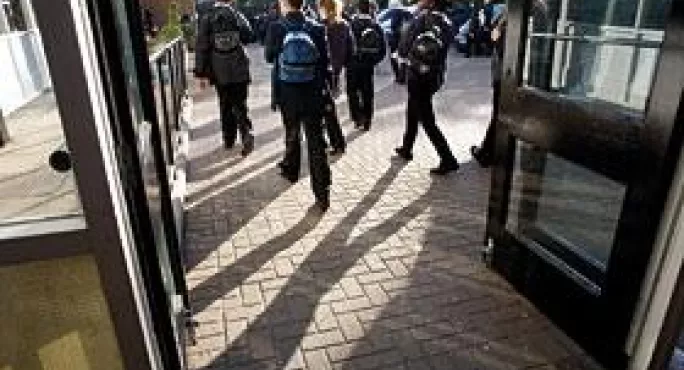Colleges are set to challenge schools for share of 14-16 market

Colleges will be able to compete with schools for students aged between 14 and 16 under new rules that have been hailed by principals as one of the most significant changes in FE for decades.
The Department for Education was due to reveal this week how colleges will be able to recruit students directly at 14, offering a college ethos and vocational options to younger students.
“It’s the most important structural change in FE in my career. It’s a massive step forward,” said Middlesbrough College principal Mike Hopkins, who is co-chair of the implementation group for the policy and has more than 30 years’ experience in the sector.
“For some young people, at 14 college will offer better learning opportunities than schools. They will be able to access vocational courses alongside academic programmes.”
Under the recommendations drawn up by the group, colleges would not recruit through the local authority admissions system but would enrol younger students in the same way as they do over-16s.
Colleges would also have a different funding system, because there are no national funding rates for under-16s. Instead, the Education Funding Agency said it intends to adapt the 16-19 funding formula. Sample figures suggest that colleges would receive between pound;4,060 and pound;5,210 per student, depending on levels of deprivation. The pound;900 pupil premium would also be available, but colleges would be responsible for identifying students who qualify because their family income is below pound;16,190.
Because schools’ funding varies so much depending on area, colleges could fare much better than schools in some areas and much worse in others. And because schools are paid according to the financial year, colleges would not receive funding for the students they recruit until the following April.
Brian Lightman, general secretary of the Association of School and College Leaders, said competition between schools and colleges at 14 as well as at 16 would be “a potential area of major tension”. It comes on top of increased competition as a result of the opening of free schools, university technical colleges and studio schools, as well as academy expansion.
“We are already seeing major difficulties where surplus places are being created in schools, making them unviable and reducing the quality of provision in an area,” he said. “The other risk is the potential for students to go down routes that aren’t in their best interests. Government policy is promoting a broad and balanced curriculum to 16: we would worry about early specialisation for most students.”
Ministers have backed college recruitment of students under 16 to give them access to “high quality” vocational provision, using colleges’ superior practical equipment.
In her report into vocational education, which recommended college recruitment of under-16s, Professor Alison Wolf proposed that students should be given one day a week of vocational provision, spending the rest of the time on English Baccalaureate (EBac) subjects.
Colleges said they could face “ill-informed” criticism arising from lower standings in the league tables if they target students with below-average attainment, as is expected.
Harrow College principal Tony Medhurst, the other co-chair of the implementation group, believes that colleges with dedicated student support teams are better equipped to offer pastoral care to those under 16. “We felt they get a better deal in colleges than other providers can offer,” he said.
But he added that, while some colleges are enthusiastic about the plans, others may decide not to recruit at 14. “This is a fundamental change in the educational landscape,” he argued. “It may not be for everybody.” He said it would be important for colleges to approach the issue with “integrity”, putting the interests of students first.
Colleges in Hull have already experimented with recruiting under-16s full- time, following the closure of David Lister School. Nearly 80 pupils have attended Hull College for the past year, with a further 48 going to Wilberforce Sixth Form College.
Gary Warke, deputy principal at Hull College, said they have partially recreated a school environment by having assemblies, a playground and a uniform sweatshirt, but that students appreciate the more adult ethos of the college. The provision ranges from GCSEs in EBac subjects to vocational courses and entry-level qualifications for the “hard-to-reach” group.
“They prefer the environment,” Mr Warke said. “They’re treated like adults, and their teachers are professional and technical experts in their subject.”
Photo credit: Report Digital
Keep reading for just £1 per month
You've reached your limit of free articles this month. Subscribe for £1 per month for three months and get:
- Unlimited access to all Tes magazine content
- Exclusive subscriber-only stories
- Award-winning email newsletters


